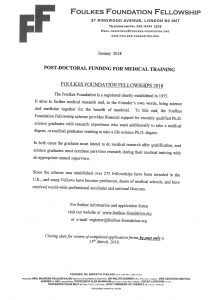The next internal panel to consider applications to be submitted to the ESRC New Investigator Grant scheme will meet in April 2018.
New Investigator Grants form one element of ESRC’s support for early career researchers and the scheme is specifically aimed at supporting those looking to make the transition to an independent researcher through managing their first major research project. These grants replace their Future Research Leaders scheme. Full details are here: http://www.esrc.ac.uk/funding/funding-opportunities/new-investigator-grants/.
The call is open to high-quality candidates from anywhere in the world who have a maximum of four years’ postdoctoral experience and the support of an eligible UK research organisation. Grants ranging from £100,000 to £300,000 full Economic Cost (fEC) can be awarded, with grants between 3 and 5 years.
The call is open to applicants both with and without a permanent academic post, but they must have strong support from a host UK institution. This includes a mentor, and provision of career development support which includes a programme of activities tailored to the needs of the applicant covering project management, methods development, KE activities and impact training, and international networking.
Proposals are welcomed across the full disciplinary range of the social sciences and at the interface with the wider sciences, however the social sciences must represent at least 50 per cent of the research focus and effort.
Following the previously agreed protocol (see the attached paper), all applications to be submitted to this scheme will go through an internal selection panel. Candidates are required to submit a 6 page case for support (following ESRC guidance), a 2 page CV and a 2 page mentor CV. Applications must have full support of the Research Director and Head of School to be put forward to the internal panel. There will be representatives from all 3 Faculties on the panel, which will be chaired by the Dean of Research and Innovation in HaSS.
All documents for the panel should be submitted to Wendy Davison (wendy.davison@ncl.ac.uk). The deadline for submission of documents for the internal panel is 12pm on Monday 16th April 2018. Applications submitted after this deadline will be required to submit to the following panel.
Below is the current most up to date guidance, any questions please contact Gwen Averley or Darren Airey.

